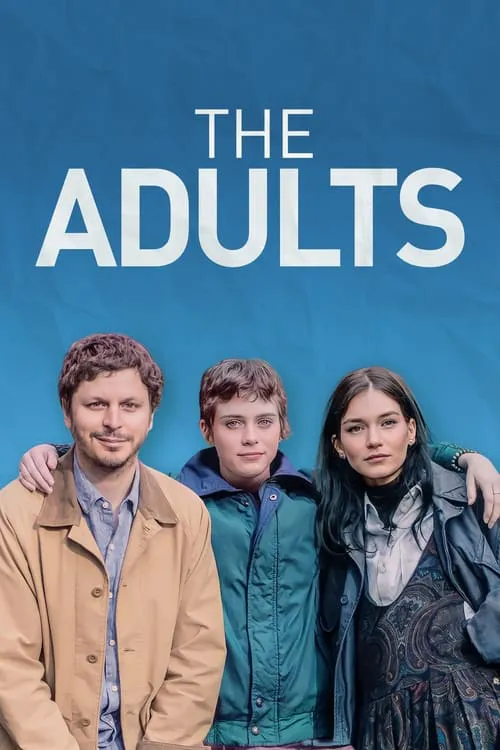The Adults

Plot
Eric returns to his hometown with a sense of nostalgia and unease. His short visit to reunite with his sisters was meant to be a welcome respite from his busy city life, but the visit quickly takes a turn into something more challenging. As Eric tries to find a balance between reconnecting with his family and rekindling old friendships, he is drawn into a world that threatens to upend his carefully constructed adult persona. Eric's reconnection with his sisters, who are as lively and mischievous as they were in their childhood days, serves as a reminder of the simplicity and innocence of his youth. Their teasing and playful jabs at his expense bring back memories of a time when Eric didn't have to worry about responsibilities or the burdens of adulthood. His sisters' presence also forces Eric to confront the changes within himself and the dynamics of their family. However, Eric's reunion with his old poker group adds a new layer of tension to his visit. The poker group, which Eric had left behind when he moved to the city, still holds a special place in his heart. The camaraderie and banter that they shared around the table are a reminder of the carefree aspect of Eric's life before adulthood took over. Eric's desire to recapture the thrill of those moments makes him reluctant to focus on reconnecting with his family. As the days go by, Eric finds himself caught between two worlds: his childhood, as represented by his sisters and the poker group, and the expectations of adulthood, which demand more seriousness and responsibility. The carefully constructed façade of his adulthood, which he had built to impress others and maintain a sense of control, begins to crumble as he is forced to confront his own vulnerabilities. The trip takes a deeper turn when Eric's childhood conflicts begin to surface. The memories and emotions that he had suppressed come flooding back, making it difficult for Eric to maintain his composure. His relationships with his sisters and the poker group become increasingly strained, as they begin to realize that Eric is not the confident and self-assured adult he had presented himself to be. As the façade of Eric's adulthood gives way, he is left facing a harsh reality: his childhood insecurities and emotional scars are still very much present. The revelations that follow make it increasingly difficult for Eric to reconcile his adult identity with the person he was in childhood. He begins to question whether he has truly grown up and whether his relationships with his sisters and the poker group are genuine. Eric's struggle to come to terms with his past and present selves becomes a defining aspect of his visit home. His attempts to recapture the carefree nature of childhood are met with resistance, not only from his family and friends but also from his own insecurities. The trip becomes a journey of self-discovery, as Eric confronts the flaws in his adult persona and the unresolved conflicts that have been hidden beneath the surface. In the end, Eric emerges from the trip with a newfound understanding of himself and the complexities of adulthood. His visit home serves as a wake-up call, making him realize that the façade of adultness is a fragile construct that can be shattered at any moment. The experience forces Eric to confront his vulnerabilities and the fears that have driven him to build a seemingly impenetrable adult persona. As he prepares to leave his hometown and return to his life in the city, Eric is left to ponder the true meaning of adulthood and the significance of the past in shaping our present selves.
Reviews
Recommendations




